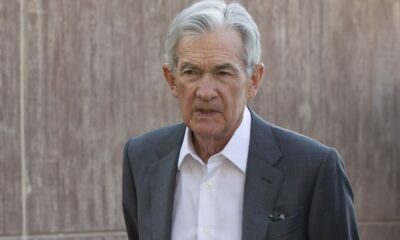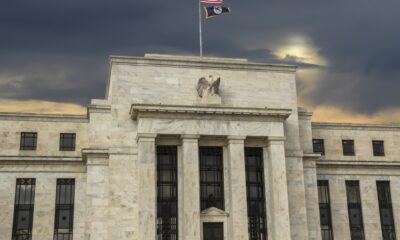Finance
Heterodox views on monetary policy

In one recent postI adopted what could be seen as an ‘elitist’ view of monetary policy. Decisions should be made by people with expertise in the field. Today I take a position that could be considered anti-elitist. Central bankers should examine the views of a variety of monetary economists, including those with heterodox views. Am I contradicting myself? Not at all.
Here is the Financial timesin an op-ed that can only be described as snarky:
Since 1997, members of the Institute for Economic Affairs’ ‘shadow monetary policy committee’ have met once a quarter somewhere outside Tufton Street, Westminster, to dress up as their favorite Bank of England rate setters. Although scientists still puzzle over the mysteries of bird migration, no one knows exactly why they go to all the trouble.
SMPC meetings nevertheless follow a familiar pattern. After summarizing global economic conditions, members discuss the prospects for inflation and growth in Britain before deciding on the appropriate level of borrowing costs. The votes are counted, a policy rate is recommended and the world keeps turning. . . .
Eclectic members include former Invesco chief economist John Greenwood (who thinks “interest rates are irrelevant”), non-executive director of Capital Economics Roger Bootle (who thinks “interest rates are fundamental”) and several card-carrying monetarists . (Louis is always cynical, wondering if perhaps the SMPC exists purely “so that they can slap each other on the back every ten years when the M4 and inflation rates are nicely overlapping.”)
The SMPC leans towards men – all fourteen members are boys – and towards Wales – four, including ‘Brexit economist’ Professor Patrick Minford, work at Cardiff Business School. Juan Castañeda and Tim Congdon both split their time between the Institute of International Monetary Research and the University of Buckingham, while Lilico shares the chairmanship with Professor Trevor Williams of Derby University and TW Consultancy when he is not catching up at consultancy Europe Economics.
Apparently the author thinks it’s a big joke that these kinds of people would have the audacity to give monetary policy advice to the BoE’s infallible experts.
If I wanted to respond snidely, I could point to British inflation over the past three years. In case the price increase was due to supply shocks such as the war in Ukraine, let’s look at wage inflation, a variable much more closely linked to demand conditions:
That does not look like sound monetary policy. Money was clearly too tight in 2008 and it was too easy in 2021. I don’t always agree with Tim Congdon, but as I recall he criticized both. in real time.
Unlike the FT, The Economist does recognize the value of having a diversity of views when determining policy:
In the 2000s, researchers conducted experiments with economics students at the London School of Economics, Princeton University and the University of California. These used a simple computerized economic model, which was subjected to random shocks. Students had to respond by changing interest rates, and were given scores based on how well they kept unemployment at 5% and inflation at 2% over the course of twenty financial quarters. In all cases, committees performed better than individuals. A large body of empirical work shows that well-run committees help soften extreme perspectives, dispel poor judgment, and provide greater insulation from both political and personal pressures.
I suggested (in chapter 5) expansion of the FOMC from 12 members to 8.2 billion (potential) members. Let everyone bet that NGDP will rise less than 3% or more than 5%, and let the Fed take the other side of the bet.













